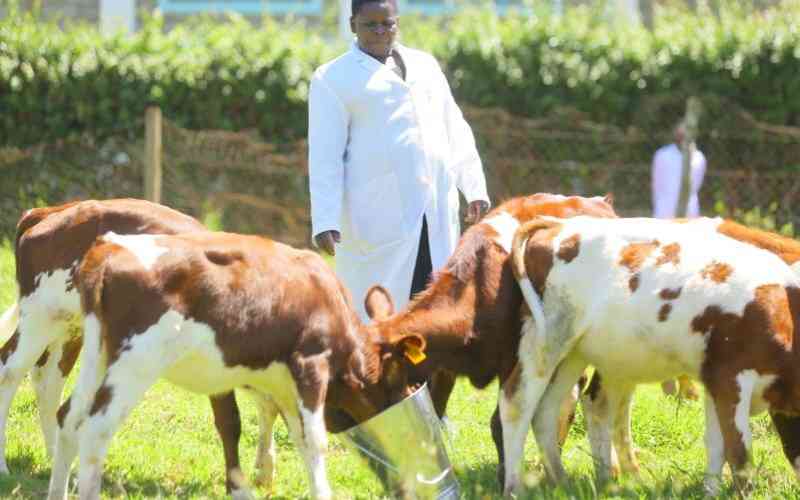×
The Standard e-Paper
Fearless, Trusted News

Kisii Agricultural Training Center Livestock Officer Caroline Kisera with some of their calfs [Sammy Omingo, Standard]
Dear Dakari, Thanks for the good work of educating us on dairy farming. I am a dairy farmer and have some concerns. The other day, something tragic happened to my six-month-old calf. My wife and I are the workers in our farms. One day, we attended a funeral in the afternoon and left enough feeds for the zero grazed dairy cows and two calves.